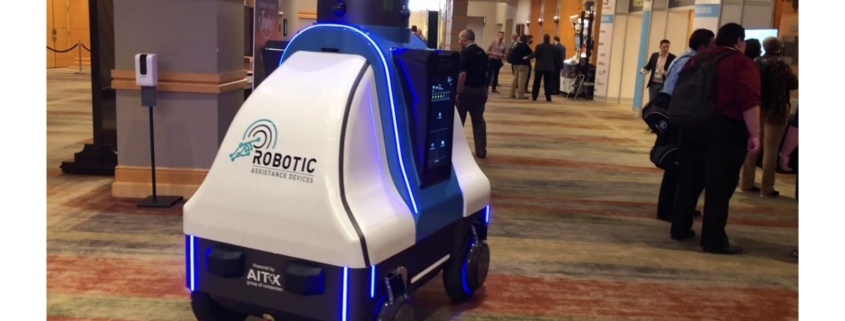Robotic Assistance Devices Receives First Order of Previously Received Letter of Intent for ROAMEO Mobile Security Robot
HENDERSON, Nev.–(BUSINESS WIRE)–Artificial Intelligence Technology Solutions, Inc., (OTCPK:AITX), today announced that its wholly-owned subsidiary Robotic Assistance Devices Inc. (RAD) has received an order from one of its authorized dealers for RAD’s ROAMEO 2.0 (Rugged Observation Assistance Mobile Electronic Officer). This dealer had committed to up to 20 ROAMEO units in a prior Letter of Intent (LOI).
This first of several expected ROAMEO units will be deployed within a major Hollywood studio whose name cannot be disclosed due to existing non-disclosure agreements.
“ROAMEO, being the first mobile device that is part of the RAD system of devices, is on track for many amazing deployments,” said Steve Reinharz, CEO of AITX and RAD. “Receiving this order during the first week of ROAMEO 2.0’s public tour was great. We expect to regularly announce more ROAMEO orders as we convert LOIs to firm orders and inevitably close more deals with other prestigious clients.”
ROAMEO 2.0 was unveiled to the public at last week’s NCS4 Conference in Phoenix, Arizona to an audience of spectator sport security executives. Due to the overwhelming reception of ROAMEO at NCS4, another conference at the same resort, the Association of Equipment Manufacturers requested an appearance of ROAMEO at their keynote address. Later this week, ROAMEO will be on exhibit at the IAAPA Expo, beginning November 16th in Orlando, Florida.
The company confirmed that the nation’s continuing labor shortage is forcing security services dealers and forward-thinking end users to seek alternatives to manned security guard positions. These alternatives include the use of autonomous, AI-driven robotic solutions. ROAMEO is a mobile security robot that is nearly 7 ft. tall and weighs over 700 lbs. According to the company, ROAMEO is built to autonomously patrol a property or periphery and survey its surroundings, conducting routine patrols, recording, and reporting back to the central command center.
Robotic Assistance Devices (RAD) is a high-tech start-up that delivers robotics and artificial intelligence-based solutions that empower organizations to gain new insight, solve complex security…



